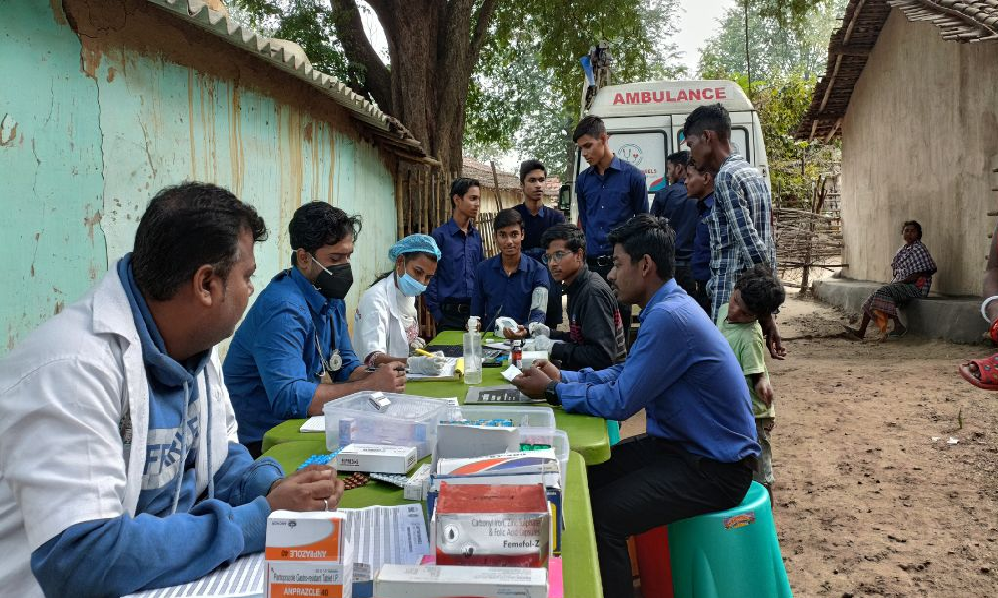Access to healthcare in remote villages has always been a significant challenge. Limited infrastructure, scarce medical facilities, and a lack of trained healthcare professionals have contributed to the persistent health crises in these areas. In this context, the Mobile Clinics in Providing Healthcare have emerged as a lifeline, delivering essential medical services to underserved populations. These mobile units bring healthcare to the doorstep of individuals who would otherwise struggle to access basic medical services.
The Healthcare Crisis in Remote Areas
Remote villages often face a severe shortage of healthcare facilities. Hospitals and clinics are either too far or too under-resourced to provide adequate care. This lack of access often leads to preventable deaths and untreated medical conditions. Mobile clinics play a vital role in addressing these gaps by providing primary healthcare, vaccinations, maternal and child health services, and even dental care. These clinics operate on the principle of mobility, making it easier for healthcare professionals to reach populations in hard-to-access regions.
Benefits of Mobile Clinics
The Mobile Clinics in Providing Healthcare offer numerous benefits to remote villages. Firstly, they eliminate the need for long and costly travel to distant hospitals. Many individuals in rural areas cannot afford the transportation costs, making it impossible to access medical care. Mobile clinics bridge this gap by bringing the services directly to them. Secondly, these clinics offer preventive healthcare, such as vaccinations and health education, which can significantly reduce the prevalence of diseases in rural populations. Thirdly, mobile clinics provide continuous care by visiting villages regularly, ensuring that people receive consistent medical attention.
Overcoming Infrastructure Challenges
One of the primary reasons mobile clinics are so effective is their ability to overcome infrastructure challenges. Roads in remote areas are often in poor condition, making travel to hospitals dangerous and time-consuming. Mobile clinics are equipped with all the necessary medical equipment and supplies, allowing healthcare professionals to offer a wide range of services, from diagnostics to minor surgeries. Additionally, these clinics can be adapted to the specific needs of each village, ensuring that the most pressing healthcare issues are addressed.
Role of Technology in Enhancing Mobile Clinics
Technology plays a critical role in enhancing the efficiency of mobile clinics. Telemedicine, for example, allows healthcare providers to consult specialists in real-time, improving the quality of care in remote settings. Mobile health apps can help track patient records and monitor chronic conditions, ensuring that follow-up care is provided even after the clinic has left. This integration of technology into mobile healthcare units ensures that patients receive timely and accurate diagnoses, which can be life-saving in emergency situations.
Government and NGO Support
The success of Mobile Clinics in Providing Healthcare depends largely on support from governments and non-governmental organizations (NGOs). Many governments have recognized the importance of mobile healthcare units and have incorporated them into their public health strategies. NGOs also play a crucial role by providing funding, medical supplies, and trained personnel to operate these clinics. Collaborative efforts between the public and private sectors are essential in expanding the reach and sustainability of mobile clinics in underserved regions.
CONCLUSION:
The role of Mobile Clinics in Providing Healthcare to remote villages cannot be overstated. These clinics have revolutionized access to healthcare, providing essential services to populations that would otherwise be left without care. Governments, NGOs, and the healthcare sector must continue to invest in mobile clinics to ensure that even the most isolated communities have access to life-saving medical services. Organizations like Fikrah are leading the charge, working tirelessly to bring healthcare to the most vulnerable, ensuring that no one is left behind.
Click here to know more about “Mobile Medical Vans: Overcoming India’s Last-Mile Health Care Challenges”

